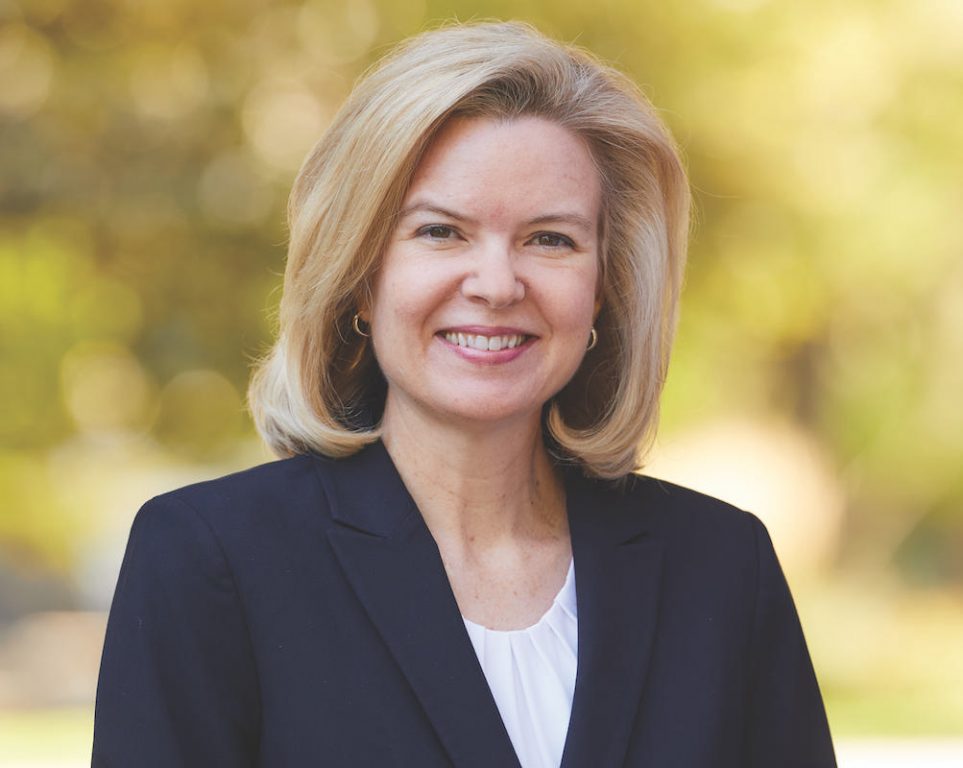Marquette University Dean Piloting Faculty in Residence Program in Fall 2022
The vision for the Faculty in Residence program is for faculty participants to serve as a clear and visible presence to help deepen integration and a more holistic student experience at Marquette
Dr. Heidi Bostic, dean of the Klinger College of Arts and Sciences and College of Education, is piloting a Faculty in Residence program at Marquette University for the 2022-23 academic year. Bostic and her husband, Dr. Stephen Pluháček, affiliated faculty member in the Department of Theology, moved into an on-campus university-owned apartment in August.
The vision for the Faculty in Residence program is for faculty participants to serve as a clear and visible presence to help deepen integration and a more holistic student experience at Marquette. Faculty in Residence program participants will serve as campus community leaders and foster intellectual and academic life beyond the classroom, as well as promote and pursue Marquette’s strategic priorities within the context of Marquette’s guiding values and Catholic, Jesuit mission.
Beyond faculty merely living in campus residence halls and apartment buildings, the program will explore the possibility of faculty partners who will work closely with students who live on campus, particularly first- and second-year students. In addition—and in collaboration with the Near West Side Partners and others—the program will seek to develop and highlight opportunities for Marquette faculty and staff to live near campus.
The Faculty in Residence program has four main goals:
Student success
Student success is a primary Marquette goal, including recruitment, retention and successful transition into life after graduation. Students will have high-impact experiences and get the support they need to thrive. Abundant research demonstrates the positive impact of a Faculty in Residence program on student success.
Employee engagement
The opportunity to live on or near campus and to engage with students in meaningful ways beyond the classroom helps promote the engagement of interested faculty and staff with the campus community and contribute to a positive workplace experience.
Sustainability
In line with the call by Pope Francis in his encyclical Laudato Si’—to care for our common home—having more faculty and staff living within walking or biking distance to campus will promote sustainability and integral ecology.
Community relations
Having more faculty and staff living on and near campus will promote engagement with our broader community, foster safety and contribute to more thriving neighborhoods, in line with work already carried out by the Near West Side Partners and the campus community.
Inaugural Faculty in Residence participants
As the first Faculty in Residence participants, Bostic and Pluháček will work toward achieving the program’s goals and help to establish the infrastructure to expand the program at Marquette. They will support the academic mission and learning that occurs within the Office of Residence Life residential curriculum, collaborate with Marquette’s Living Learning Communities, work to create a more robust ecosystem that includes hall ministers and Jesuits in residence, host small-group gatherings of students and encourage faculty participation in residence hall events.
NOTE: This press release was submitted to Urban Milwaukee and was not written by an Urban Milwaukee writer. While it is believed to be reliable, Urban Milwaukee does not guarantee its accuracy or completeness.
Mentioned in This Press Release
Recent Press Releases by Marquette University
New Marquette Law School Poll finds large majority of Wisconsin voters not yet tuned in to who is running in major 2026 elections
Oct 29th, 2025 by Marquette UniversityNo candidate has established strong position in public favorability in governor, state Supreme Court races; large majorities of voters undecided
New Marquette Law School National Survey Finds Large Majority Think Political Violence is a Big Problem, But With Sharp Partisan Differences
Oct 1st, 2025 by Marquette UniversityAmericans are overall pessimistic on reducing intense political conflict; half of those polled say heated language by leaders makes violence more likely






















